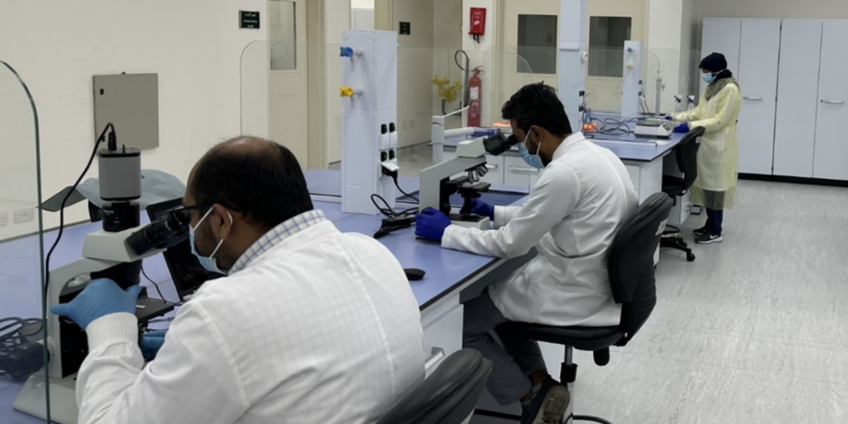
Overview
The Department of Clinical Microbiology has been teaching medical students since 1977. Microbiology is the science of medicine that deals with micro-organisms, i.e., bacteria, viruses, fungi, and parasites, which cause infections/diseases in humans. The department is concerned with teaching the basic properties of the organisms, pathogenesis, laboratory diagnosis, treatment, and prevention of these types of diseases. The department’s faculty members are actively involved in research work and the results of their research have been presented and published in both Saudi Arabian and international medical journals.
Mission
The Department of Clinical Microbiology helps medical students acquire the latest discoveries and information regarding microbiology, immunology and micro-organisms that represent the foundation of different infectious diseases.
Goals
On successful completion of each of the courses outlined below, the medical student should be able to:
- Acquire the ability to recognize and deal with different medical micro-organisms and to know their relationship to the causation of various infectious diseases.
- Participate in protection of the community from the spread of different medical micro-organisms and to limit their ability to cause disease.
Historical Background
In 1975, the department of Clinical Microbiology was established as a part of the establishment of the college of medicine. Before the implementation of the new problem-based curriculum, the department used to teach three separate courses to the 3rd year students:
- Microbiology
- Parasitology, and
- Immunology course.
With the implementation of the new curriculum in 2015, teaching of microbiology, parasitology and immunology became part of the Med 201 (foundation of medicine I) and the Med 301 (foundation of medicine II). The department is also involved in teaching microbiology and immunology courses at different colleges in the university.
The department established its clinical microbiology fellowship program in 2012, and the inaugural class graduated in 2016. This program serves the kingdom by equipping clinicians with cutting-edge expertise in clinical microbiology to the present day.
In 1979 The microbiology diagnostic laboratory was established in King Fahd Hospital of the university, and it is responsible for diagnosing parasitic, bacterial, and fungal infectious diseases. Since its accreditation by the College of American Pathologists (CAP) in 2013, the laboratory has undergone several phases of development, including the implementation of new technologies to ensure accurate identification of microorganisms in a timely manner. It also serves as a training facility for residents, interns, and ID fellows from all over the Kingdom.
The department is in the process of establishing a BSL3 laboratory is expected to be functioning in 2024, which adheres to international standards for safety for mycobacterial identification and is equipped to handle highly infectious pathogens.



